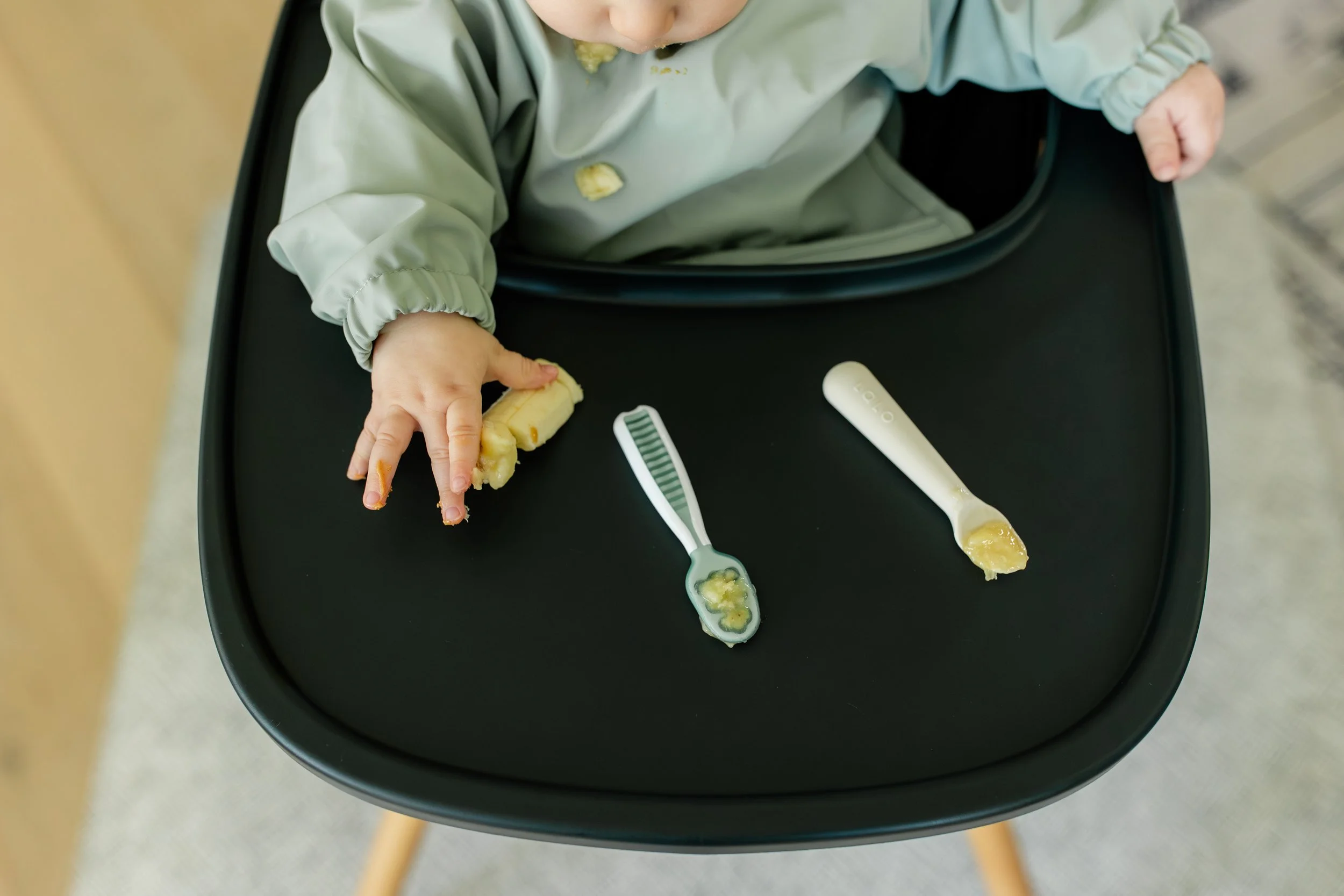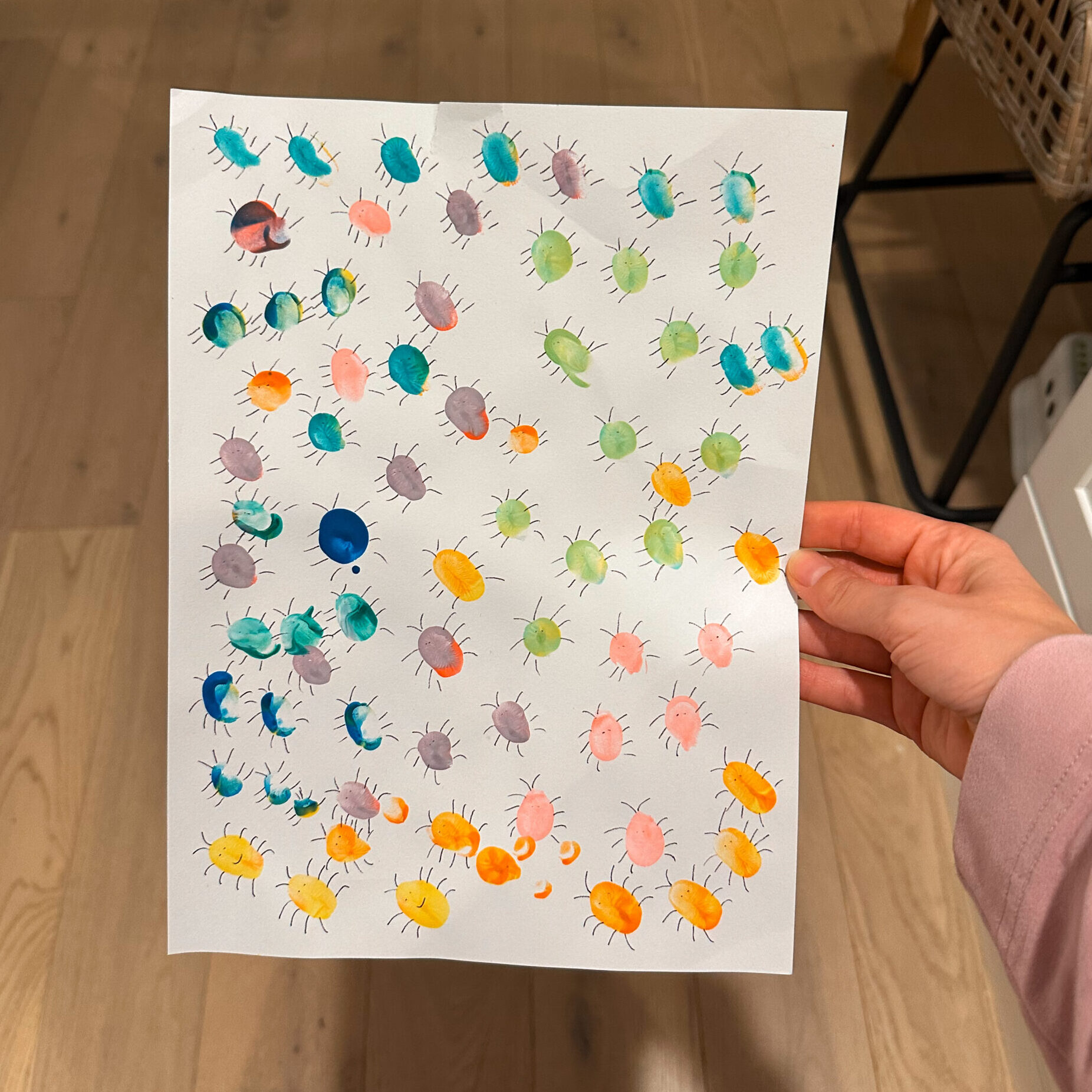Spoiler alert – you’re probably stressing about it unnecessarily. Keep reading for the answers to all your protein related questions from our pediatric registered dietitian.
Protein is Important for Babies
Protein is one of the three macronutrients that make up your little one’s diet, along with carbohydrates and fat. It is essential for their growth and development, tissue repair, immune system function, metabolic health, hormone production and more. The importance of protein is a frequently discussed topic and all the attention around it may leave you wondering if your little one is getting enough.
How Much Protein Baby Needs
Let’s start by talking about how much protein your little one actually needs. Babies 0-6 months old need about 9 grams of protein per day, which is met through breast milk or formula. Infant formula has more protein per ounce compared to breast milk because the protein from formula is not absorbed and utilized as well as the protein from breast milk.
Babies 7-12 months old need about 11 grams of protein per day, or 1.5 g protein per kilogram of body weight. So, if your baby weighs 18 lbs (8.16 kg), their protein needs would be about 12 g protein per day. Until 12 months, a baby’s primary nutrition source is still breast milk or formula, which means the majority of their protein intake is still coming from either one. So, only a couple additional grams of protein is needed from solid food per day in order to meet your baby’s protein needs.
Toddlers ages 1-3 years old need around 10-20 grams of protein per day, or 0.5 gram of protein per pound of body weight. So, if your toddler weighs 30 lbs, they will need about 15 grams of protein daily.
Protein Needs of Toddlers
Let’s talk about toddlers for a moment. Up until around the age of 18 months, give or take a few months, most babies will readily accept most foods and it probably seems pretty easy to keep a regular rotation of protein foods in their diet. Somewhere around 18 months, our toddlers may start to show strong preferences towards their foods and some form of “picky eating” may evolve – this is totally normal! But, at the same time, it may seem like your toddler just wants to eat carbs all day every day and this can leave you stressing about their protein intake.
Know this – it is normal for toddlers to eat about 50% of their calories as carbohydrates, about 10-15% as protein and the rest (35-40%) as fat. For example, if your toddler is eating about 1,000 calories per day, it is normal for them to eat about 500 calories from carbs, 100 calories from protein and 400 calories from fat. It is fairly easy for toddlers to meet their protein needs of 10-20 grams/day so it is really not necessary to worry about counting the exact number of grams or hitting a certain amount per day.
Two things that ARE worth focusing on are satiety/fullness after a meal or snack and iron intake.
Serving your toddler a balanced snack/meal with all 3 macronutrients present (carbs, fat and protein) will help to ensure they are satiated after eating and will help them make it to the next meal without needing a ton of snacks. Another added bonus is that their blood sugar and energy will be more stable by avoiding blood sugar spikes and crashes – this can translate to more stable moods! The key in this equation is the protein, as it takes longer to digest and contributes to prolonged fullness.
Focusing on iron in your toddler’s diet is a smart idea because babies and toddlers are more likely to be iron deficient than protein deficient. The highest prevalence of iron deficiency anemia is in children, with 1-2% of children ages 1-5 having iron deficiency anemia. (1) The best sources of iron are also sources of protein, so by focusing on adequate iron intake you will also be checking the box on protein.
Best Sources of Protein
Protein can come from animal based sources and plant based sources. Although plant based proteins have their benefits (like fiber and phytonutrients) the protein from animal sources is nutritionally superior. Animal proteins are considered complete proteins because they contain all the essential amino acids, whereas most plant proteins are incomplete proteins because they do not contain all essential amino acids, with the exception of pea protein and soybeans. Different plant based proteins can be combined (beans + rice) to make complete proteins. The protein from animal sources is more easily digested and utilized by the body and it is also rich in heme iron, the type of iron that is absorbed and utilized better than the non-heme iron found in plant based sources.
Animal Based Protein Sources
-
Beef, lamb, pork, bison, venison, 1 oz, 7-9 g protein
-
Chicken and turkey, 1 oz, 8 g protein
-
Fish, 1 oz, 5-8 g protein
-
Cheese, 1 oz, 7-9 g protein
-
Beef and chicken liver, 1 oz, 5-7 g protein
-
Eggs, 1 egg, 6-7 g protein
-
Full fat cottage cheese, ¼ cup, 6 g protein
-
Full fat greek yogurt, ¼ cup, 5 g protein
-
Whole milk, 4 oz, 3.8 g protein
Plant Based Protein Sources
-
Lentils, ¼ cup cooked, 8 g protein
-
Quinoa, ¼ cup cooked, 6 g protein
-
Peanut butter, 1 Tablespoon, 3.5 g protein
-
Whole wheat pasta, ½ cup cooked, 3.5 g protein
-
White beans, ¼ cup, 3 g protein
-
Tofu, 1 oz, 3 g protein
-
Hummus, 1 Tablespoon, 1 g protein
Protein Packed Snack Ideas
-
Turkey and cheese roll up
-
Cheese stick + fruit
-
Hard boiled eggs + fruit
-
Greek yogurt + fruit
-
Cottage cheese mixed with applesauce
-
Smoothie made with yogurt, fruit and nut butter
-
Canned fish and crackers
-
Chicken sausage links cut up into rounds with fruit
-
Hummus + veggie sticks or crackers
-
Cheese and bean quesadilla
Example Meal Schedule for 9-Month-Old
-
Early AM: Breastmilk or Formula
-
Midmorning: Breastmilk or Formula + 2 Tbsp. scrambled eggs, 2 Tbsp. avocado chunks, ¼ banana
-
Midday: 1-2 Tbsp. chicken liver pate, 1 kiwi cut into chunks
-
Afternoon: Breastmilk or Formula
-
Evening: 1-2 Tbsp. sardines, soft chunks of mango, and soft cooked chunks of carrots
-
Nighttime: Breastmilk or Formula
Total protein from food (not counting protein in breastmilk/formula) = 8-13 grams, depending on serving sizes
Total iron from food (not counting iron in breastmilk/formula) = 2-3 mg of heme-iron, depending on serving sizes
Example Meal Schedule for 18-Month-Old
-
Breakfast: 1 scrambled egg, 3 Tbsp mango chunks, 1 chicken sausage link, 1 Tbsp avocado chunks, 3 oz whole milk
-
Snack: ¼ cup plain whole milk greek yogurt + ½ Tbsp cashew butter stirred in, ¼ cup mixed berries
-
Lunch: 2 Tbsp. chicken liver pate spread on crackers, 1 Tbsp. hummus + cucumber slices
-
Snack: 1 oz sliced cheddar cheese + apple slices
-
Dinner: ¼ can of oysters, mashed sweet potato + butter, 1 oz peas
-
Snack: 3 oz whole milk
Total protein from food (not counting protein in breastmilk if baby is still nursing) = 43 grams
Total iron from food (not counting iron in breastmilk if baby is still nursing) = 9.5 mg
Example Meal Schedule for 3 Year Old
-
Breakfast: 4 oz whole milk, 1 boiled egg, 1 chicken sausage link, 1 pear
-
Lunch: 2 slices turkey breast rolled up with avocado slice inside, cucumber + carrot sticks with 2 Tbsp. hummus, ¼ cup blueberries
-
Snack: 1 cheese stick, ½ cup grapes
-
Dinner: ½ cup Jovial einkorn pasta, 1 Tbsp. butter, ¼ cup beef bolognese sauce made with chopped liver, 1 Tbsp grated parmesan
-
Snack: 4 oz whole milk, 1 small banana, 1 Tbsp cashew butter
Total protein amount: ~46 grams
Total iron amount: ~7 mg
Can My Baby or Toddler Have Too Much Protein?
Although protein is important, more is not always better, especially in the case of babies and toddlers. Overdoing protein can put unnecessary stress on the kidneys and liver and it has the potential to displace other important nutrients. If you increase one of the macronutrients too much (protein), then the amount of carbohydrates and fat and the nutrients that they contain could be inadequate.
Additionally, there is an association between high protein intake in infants and toddlers and a higher BMI in childhood. A literature review found that higher total protein intake in the first 2 years of life was associated with a higher BMI in childhood. (2) This means that there is the potential for excessive weight gain later on if protein is overconsumed in the first 2 years of life. This is why focusing on macronutrient balanced plates is so important! So, skip the protein powders, bars and shakes and focus on appropriate serving sizes of protein from real foods.
Wherever you are in your feeding journey, we have you covered! For expert-backed guidance, check out our best-selling resources.









